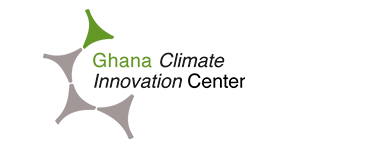How will finding my inner leader help my business? That was one of the first questions participants raised during the opening day-retreat of the Women Entrepreneur Transformation Programme (WETP) run by leadership transformation facilitator and coach
Rachel Allan at the Ghana Climate Innovation Centre (GCIC) at Ashesi University in February.
Eight inspiring women – all leading organisations working on environmental challenges and coming from the GCIC network – are part of the programme. These leaders are united through their passion for environmental issues and the ambition to make this world a better place through how they lead their businesses.
The GCIC sits on top of a hill overlooking Accra in a quiet surrounding. “The eyes of the future are looking back at us and they are praying for us to see beyond our own time,” is written on the wall of the room where we were going to spend the day. Arriving there, I am thinking, it’s the perfect location for such a programme
The Women Entrepreneur Transformation Programme aims to unleash the untapped potential of female entrepreneurs. Upon completion of the 6-months programme, participants will have transformed their leadership with increased authenticity, trust and awareness, and they will increase their impact in the world. They will have established a new community of like-minded women that will be a support system on this self-development path, and potentially beyond, and will be stronger role-models to other female entrepreneurs. Ultimately, leading from the inside out, they will guide their businesses purposefully, authentically and consciously, they will have an impact on the transformation of Ghana’s economy, leadership, and contribute to tackling some the country’s most pressing environmental challenges
“We are all leaders: a leader is responsible for their world, however big or small. I firmly believe that leadership starts within and the only way to evoke positive transformation at home, work, our communities, the world, is to start there: within. Our inner leadership directly influences our outer impact,” explains Rachel
Rachel is a coach who works mainly with women, supporting them to increase their impact in the world through 1-2-1 coaching, group facilitated learning journeys and consultancy. She is a passionate advocate for slowing down, aligning with purpose, building trust and taking action, as well as women’s rights and climate action. She has successfully run similar programmes in Nepal, Indonesia and Europe
The cooperation with the GCIC and its Executive Director Ruka Sanusi seems to be a natural match: Rachel shares a strong interest in environmental issues, and the GCIC aims to create transformational ventures and entrepreneurs who are pioneering innovative solutions for climate change issues in Ghana, mainly in the areas of energy efficiency and renewable energy; solar power; climate smart agriculture; and waste management and purification
The first session of the 6-months programme aimed to create a safe space of trust, inspiration, motivation – and commitment to be an active member of the community. There was a lot of energy in the room from the beginning, which seemed to multiply as the day unfolded, and everyone seemed to be open to take in whatever was going to come.
Everyone was indeed sharing openly very personal experiences and emotions that were brought up through visualisation exercises, and challenges that asked participants to describe themselves at their best and their worst, and to develop their “life purpose” statements, to give but a few examples.

A lot to digest! And the programme is well designed to do so. In the meantime, the women have started going through one-on-one coaching and group sessions. Additionally, weekly motivational emails and monthly webinars and accountability calls, and many hands-on exercises are designed to explore themes such as self-awareness, personal responsibility, overcoming challenges, resilience, and speaking up.
Many of the women entered the programme with little or no expectations. All of them confirmed that already the first workshop had achieved to create a community of like-minded – though “uniquely different” (as one of the participants stated) – women. They have embarked on a joint journey and are committed to “help, encourage and correct each other, and bring change into our lives,” as one woman said
We are now in the middle of what has already proved to be a transformative journey. And the question, in how far the programme would help the women’s businesses, has clearly been answered by one participant: “We need to know who we are, and we will be able to lead our businesses.”


